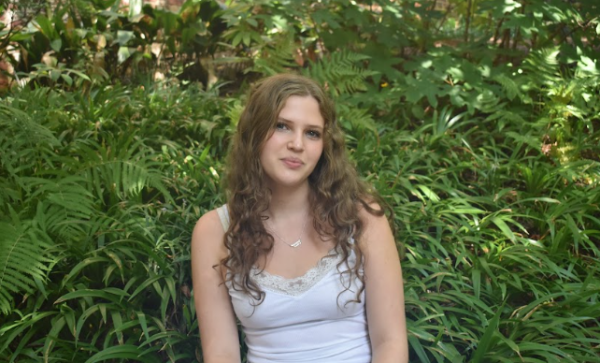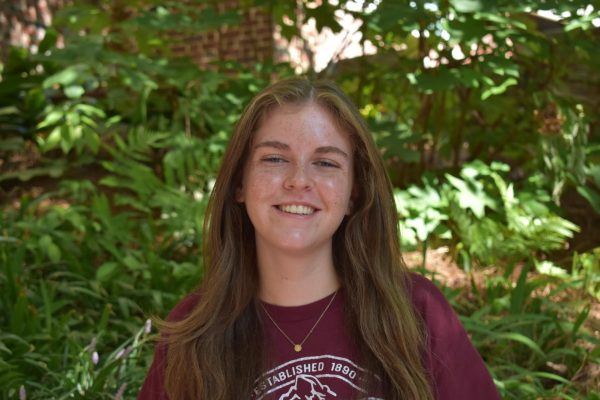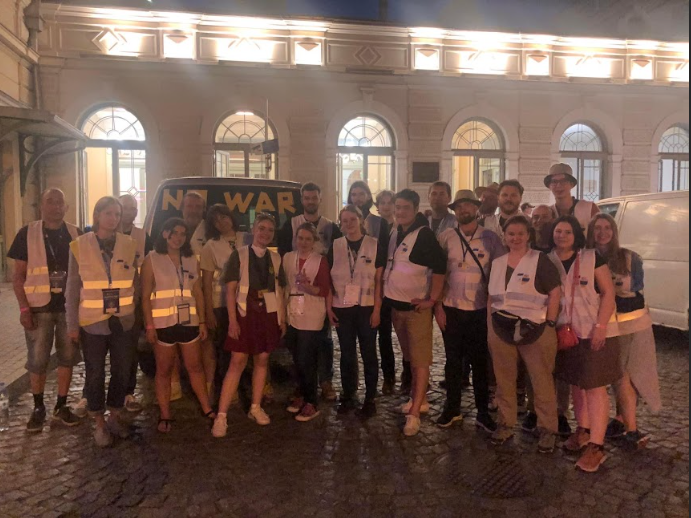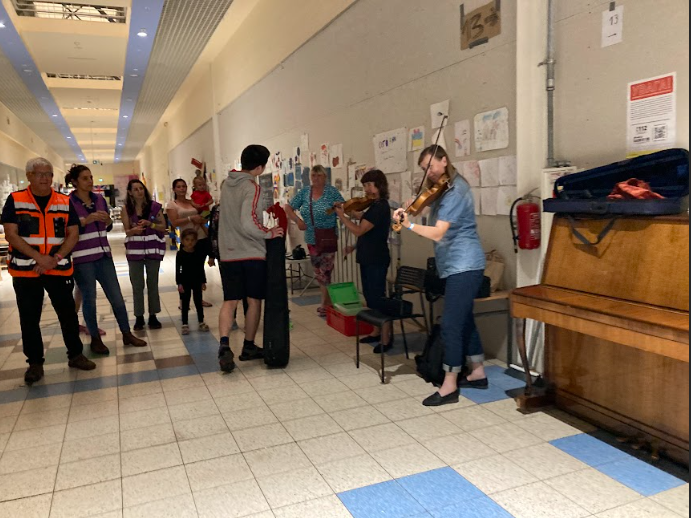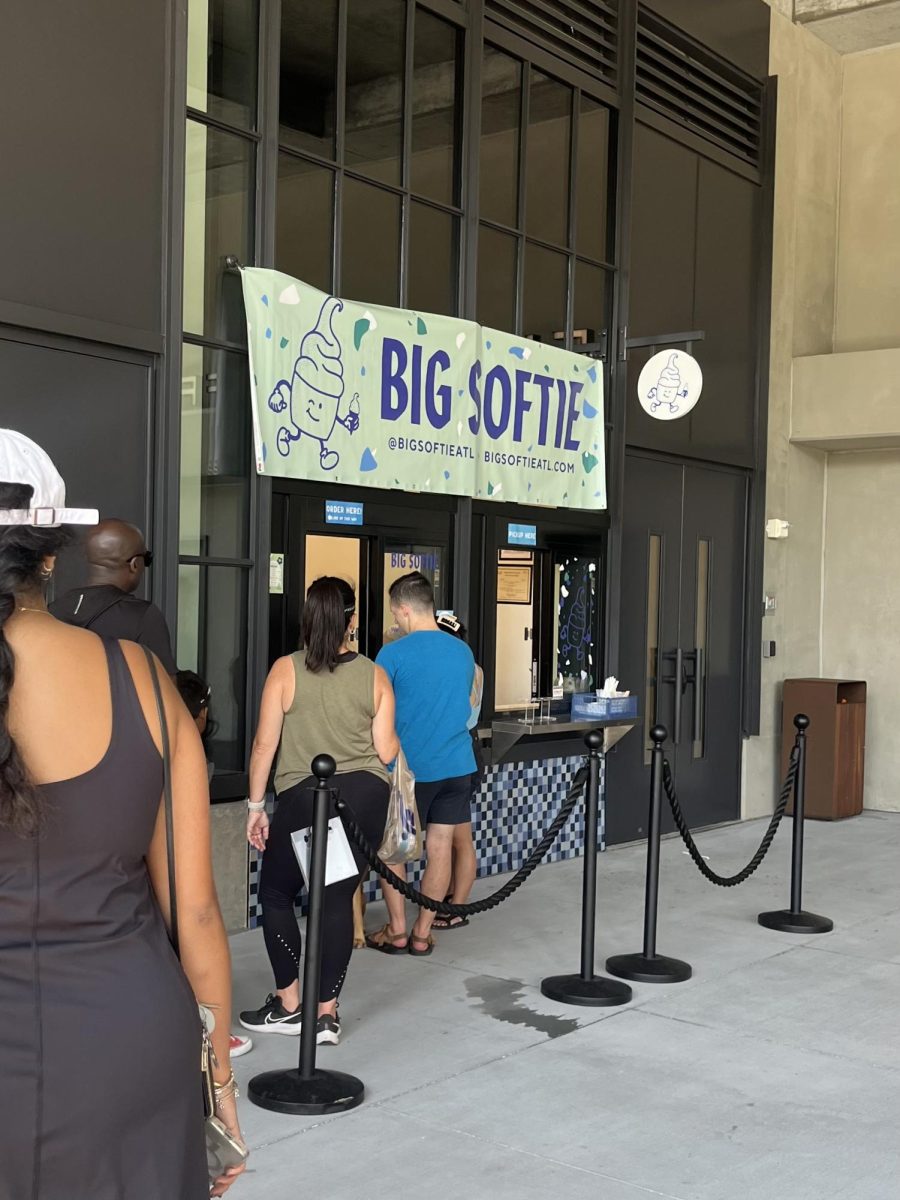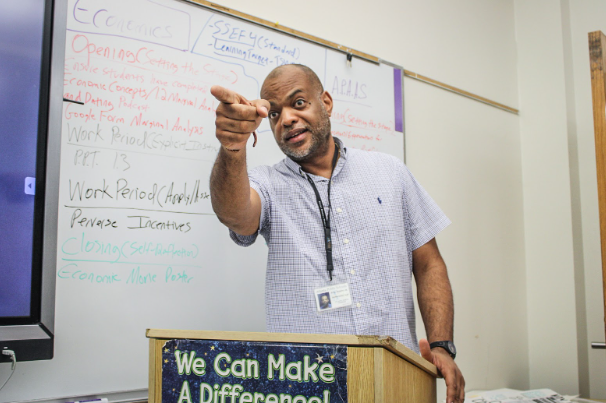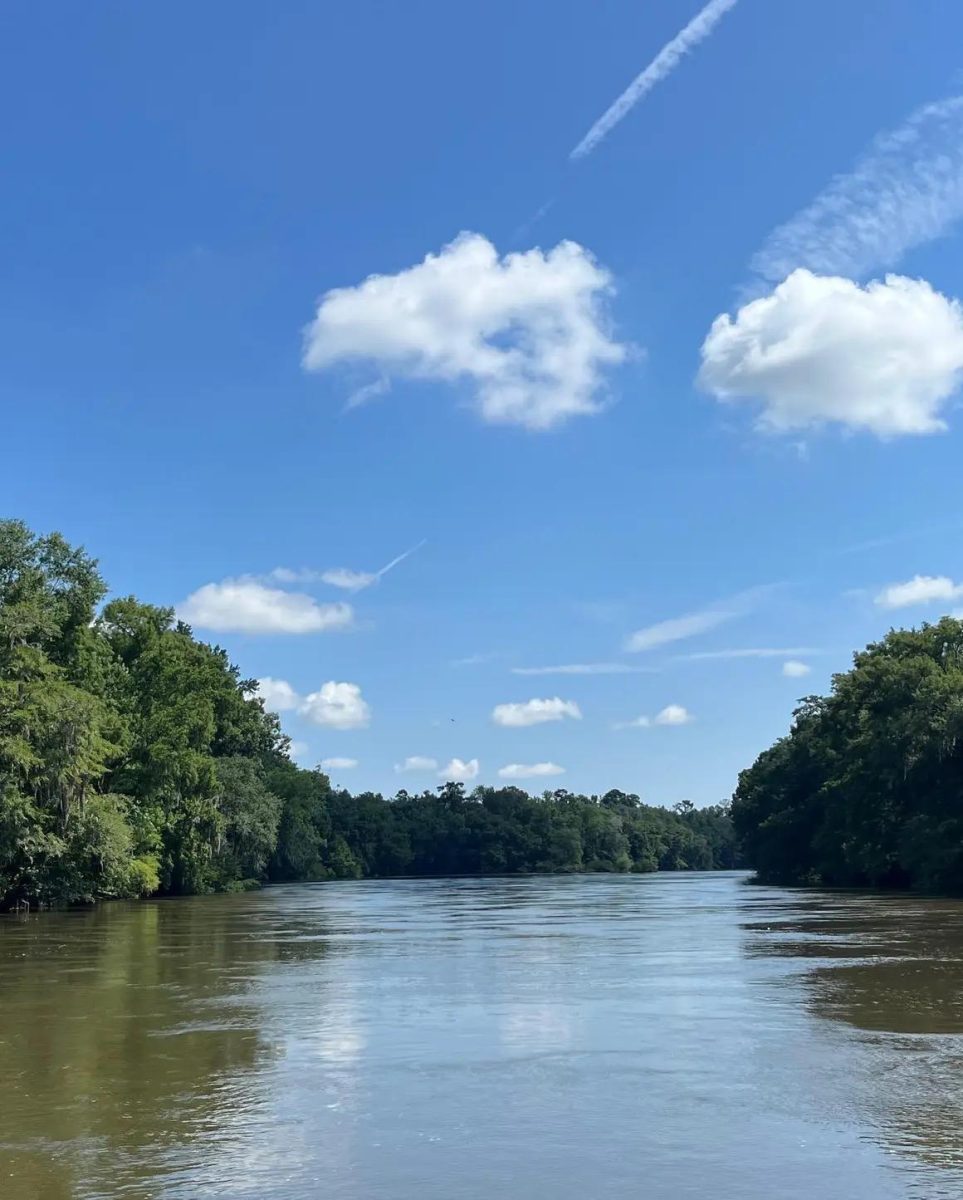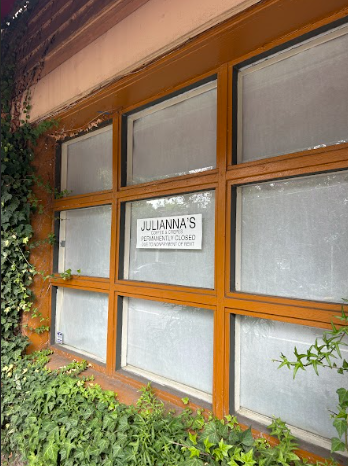Senior Pivoshenko gathers supplies, supports Ukrainian refugees
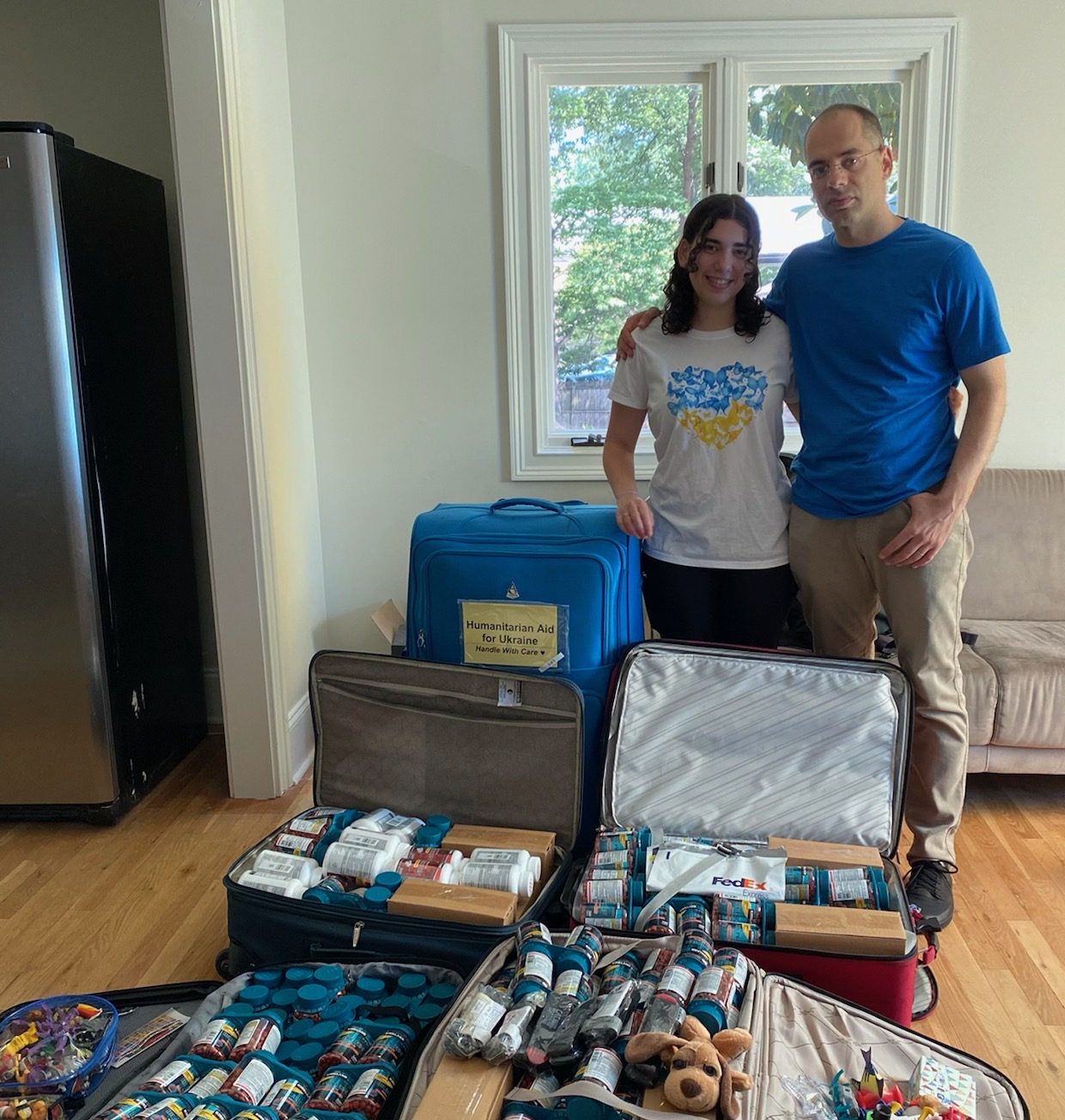
After learning about the devastation of the Russia-Ukraine conflict, senior Talia Pivoshenko sought to remedy the impacts of the conflict in ways that few others around her have done: dedicating her summers, Pivoshenko took the initiative to volunteer in Przemysl, Poland to help refugees.
In February of 2022, Russia launched a full-scale invasion of Ukraine, intensifying the Russia-Ukraine conflict. The war has been ongoing ever since, causing millions of refugees to flee the country and hundreds of thousands of casualties.
“My parents are both from Ukraine, so I’ve grown up feeling connected to the country,” Pivoshenko said. “My dad is from Odesa, and my mom is from Chernivtsi. I had only visited one time, but I was always amazed by its beauty and how connected I felt to it.”
Talia’s mother, Vita Zeltser left Ukraine when she was 9, and her father Alex Pivoshenko left when he was 14. Talia and her father feel their personal connection to Ukraine created an emotional pull to volunteer.
“That’s where you’re born, that’s where you’re from,” Alex Pivoshenko said. “It’s a connection. You still feel that these are your people. It’s kind of horrible to say, but there’s always something bad going on in the world, but this hits you hard because you know these people, [and] you know these places where this is happening.”
When Pivoshenko and Alex Pivoshenko left for Poland to volunteer for Russians for Ukraine, a volunteer group formed by Russian dissidents, they brought huge suitcases. They weren’t full of clothes for their long trip, but instead, they were full of medical supplies, treatments and amenities to be donated to the communities they were traveling to help.
“I remember helping my sister and dad pack and going with them to the airport before they left,” freshman Mia Pivoshenko, Talia’s younger sister, said. “It was really eye-opening to see what was going to happen.”
Talia Pivoshenko is fluent in Russian, allowing her to communicate with those who were primarily Russian-speaking in order to help people directly. She worked in the Przemysl Glowny Train Station in an area closely bordering Ukraine and in a humanitarian aid center located within an abandoned mall called Tesco, holding a place for 1,200 refugees to stay.
“I worked at the train station giving directions and helped people get tickets and figure out the best routes to take them wherever they needed to go,” Pivoshenko said. “In the refugee center, I worked as a Russian-to-English translator for a group of volunteer doctors in the medical center.”
The stream of passengers both leaving and heading toward Ukraine filled the first stop in Poland for many refugees after they crossed the border. Alex Pivoshenko and other volunteers spent much of their time there helping with heavy luggage, sometimes everything the person owned. Some returning to Ukraine carried bullet proof vests, contributing to the weight of the cargo. With no elevator or escalators, the only option was the stairs, and with some luggage missing wheels and falling apart, the physical difficulty was increased.
“The time that we were there, every train that would arrive from Ukraine was completely full, but every train that was going back to Ukraine was also full,” Alex Pivoshenko said. “There were a lot of people who lived here that all wanted to come back and at some point they evaluated the risk. If they’re in another country, [they] can’t stay where [they] don’t feel at home. A lot of people went back where it’s dangerous, but they still prefer to be at home and go back.”
The places where Pivoshenko worked were not clean-cut or perfect places for recovery. Instead, they were sometimes makeshift and exceptionally busy. The refugee center held a clinic, nursery and areas to house people.
“I also worked in the mother’s and child’s room and helped people get things they needed like baby formula, diapers, blankets and pillows,” Pivoshenko said. “I also spent a few days working outside at the kid’s playground, playing with them and babysitting.”
George Nurmanov, founder of Russians for Ukraine, has been involved in political activism against Vladimir Putin’s regime throughout his time growing up in Russia. When the war broke out in Ukraine, he created the volunteer group to help people physically, but also to aid with communication.
“There were about 10 people of those 300 who were underage,” Nurmanov said. “They were extremely helpful because they were open-hearted. Most of them spoke brilliant Russian, English and sometimes Polish, as did my son. [Talia] helped a lot. She was helping other volunteers, translation, etc. She was just an openhearted girl. A very fine person for volunteering.”
The stories from grandfathers and other refugees as well as significant moments that served as a constant reminder of the gravity of the war contributed to the difficulties Alex Pivoshenko felt while volunteering.
“Mentally, of course, this was very difficult because you would end up talking to different people and you would hear their stories,” Alex Pivoshenko said. “You would hear how somebody’s place got destroyed from getting bombed, how they were hiding during the first days of the war, how they tried to escape. There was a gentleman who was talking about his little grandchild and how the little grandchild was diving and hiding when the bombs started flying. One moment that was very memorable for me was when we were in the refugee center and the weather had just gone bad. All of a sudden there was thunder. The whole place just froze with this fear and horror in everybody’s eyes because they thought that there was an explosion. Moments like that were difficult.”
Throughout the experience, Pivoshenko said amid all the tragedy and sadness that ensued from the displacement, she found beauty. She said she witnessed hope through music when two members of the Kyiv Symphony Orchestra began a small concert for strangers in the refugee center.
“We weren’t sure if we were going to volunteer with Russians for Ukraine the whole time but we ended up finding it super meaningful and impactful,” Pivoshenko said. “It was just a really heartfelt experience.”
Pivoshenko said she saw different small acts of wonder throughout the journey: a magic show by an Irish volunteer, people traveling from far and wide to bring supplies to help and strangers helping strangers search for things they need to provide comfort.
“It was a really cool and inspiring experience,” Pivoshenko said. “Meeting all these new people from different parts of the world who came to Poland for the same cause, to make something better. Anybody could do something to make an impact. Even the smallest thing of giving pillows or sending food makes a huge difference.”
Nurmanov feels the volunteer work has brought people together by working towards a common goal.
“It’s a lot of fun to see [the Pivoshenkos] come here to help Ukrainians suffering from Russian aggression,” Nurmanov said. “To be under our flag, because for them, but also for Ukrainians to be bound with Russians is progress. I love those guys because of their bravery. I love Talia and her parents. I think that they find purpose being here.”
The importance of volunteering and helping others is an attribute her father hopes stays with Talia throughout her life.
“I think this is an experience that will form her over her life,” Alex Pivoshenko said. “I think it was already noticeable last year, but I think it is something that will stay with her for the rest of her life. It’s something that will hopefully shape her to be a better person. Within our family she is the oldest of the three so to some extent she will also be a role model for her younger sisters.”
Since returning from Przemysl, Pivoshenko, her friends and her family have continued to advocate for Ukraine and the refugees seeking suffrage there. They have attended rallies and protests, continued to donate and voiced their support for the struggles of people affected by the war.
“It’s important to me that people continue to know that the war is still going on and that people still need help,” Pivoshenko said. “I think a lot of people forget because it started so long ago, but it doesn’t change the fact that doing even something little could help a lot of people.”
